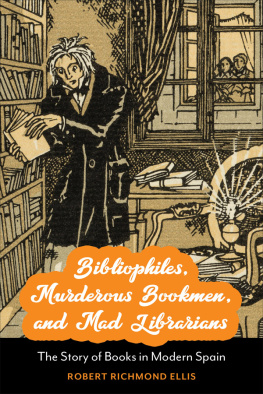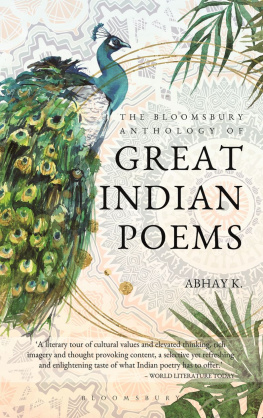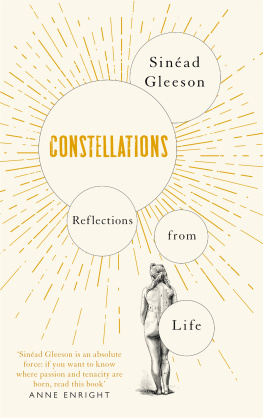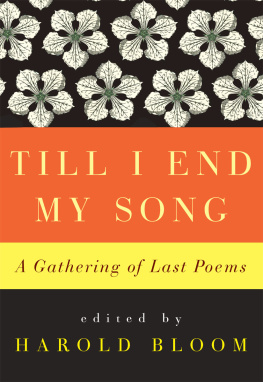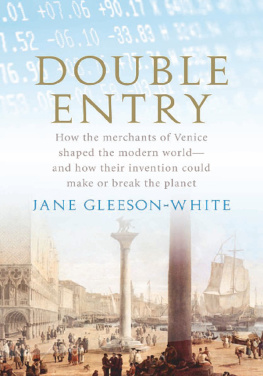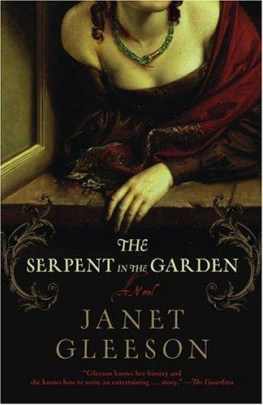Gleeson White (ed.) - Book-song: An anthology of poems of books and bookmen from modern authors
Here you can read online Gleeson White (ed.) - Book-song: An anthology of poems of books and bookmen from modern authors full text of the book (entire story) in english for free. Download pdf and epub, get meaning, cover and reviews about this ebook. year: 1893, publisher: Elliot Stock, genre: Romance novel. Description of the work, (preface) as well as reviews are available. Best literature library LitArk.com created for fans of good reading and offers a wide selection of genres:
Romance novel
Science fiction
Adventure
Detective
Science
History
Home and family
Prose
Art
Politics
Computer
Non-fiction
Religion
Business
Children
Humor
Choose a favorite category and find really read worthwhile books. Enjoy immersion in the world of imagination, feel the emotions of the characters or learn something new for yourself, make an fascinating discovery.
- Book:Book-song: An anthology of poems of books and bookmen from modern authors
- Author:
- Publisher:Elliot Stock
- Genre:
- Year:1893
- Rating:3 / 5
- Favourites:Add to favourites
- Your mark:
- 60
- 1
- 2
- 3
- 4
- 5
Book-song: An anthology of poems of books and bookmen from modern authors: summary, description and annotation
We offer to read an annotation, description, summary or preface (depends on what the author of the book "Book-song: An anthology of poems of books and bookmen from modern authors" wrote himself). If you haven't found the necessary information about the book — write in the comments, we will try to find it.
Book-song: An anthology of poems of books and bookmen from modern authors — read online for free the complete book (whole text) full work
Below is the text of the book, divided by pages. System saving the place of the last page read, allows you to conveniently read the book "Book-song: An anthology of poems of books and bookmen from modern authors" online for free, without having to search again every time where you left off. Put a bookmark, and you can go to the page where you finished reading at any time.
Font size:
Interval:
Bookmark:
BOOK-SONG an anthology of poems of books and bookmen from modern authors edited by GLEESON WHITE Editor of "Ballades and Rondeaus," "Garde Joyeuse," etc., etc. LONDON ELLIOT STOCK, 62 PATERNOSTER ROW 1893
to RICHARD LE GALLIENNE. Five years ago a promise lightly made Is claimed herein, as with a doubting pen I dedicate this sheaf of verse which then You bade me gather. But I, half afraid, Dallied, and loitered, and long while delayed; Now Time has brought new idols to our ken, Anthologies no longer charm as when A lustrum since this garnering you bade. The English rose of song is not less sweet; The petals borne from England oversea Delight us still; but pulses slower beat To books than Life; that volume which to me, Though torn and dog-eared, sadly incomplete, Holds one bright chapter headed "Memory." G.
PREFACE.
PREFACE.
It is not easy to discuss that love for books, which in some men is indeed wonderful passing the love of women, without quoting Charles Lamb. For he is of all later classics the ideal book-lover; one who adores not only their mental but their physical beauty: no mere aesthetic admirer, content to "worship from afar with distant reverence"; but one who must fondle his treasures. To gaze mutely, with a satisfied joy in being near enough to caress and abstain, is the secret of this type of book-lover, who must also be a reader and a student. Did not "Elia" wish to ask a grace before reading more than a grace before dinner? Now-a-days we are apt to forget either salutation; yet the thrill of pleasure an old favourite or a much-longed-for new book inspires, at times bursts into song. Your lover has a habit of dropping into rhyme in a way which oftentimes, to be quite honest, does more credit to his devotion than to his culture; even with a facile writer bathos waits nearer than pathos. The few eternal verities come with fatal ease; and, vivid as they may be to the rhymer, fall somewhat tamely on a listener's ear.
Therefore it would be rash to declare that all poems about books are worthy of their subject. Of course it may be urged that genuine emotion when too deeply felt ignores the self-criticism which mere artifice accepts gladly. But art has nothing to do with what the poet really felt; whether he awakens the same feeling in his reader is the question. If forced to be so ungracious as to criticise a large class of bookish verse, one might own the evident sincerity of the singers, and yet wish at times that their very fervid praise had been more cautiously uttered. To dilate upon perfection is singularly non-exhilarating. "Too much chatter about books," according to Mr.
Frederic Harrison, "chokes the seed which is sown in the greatest books of the world." We have been told that "lips sing but when they cannot kiss." But this hardly holds true of bibliophiles, who might easily suppress the imminent poem were it not that the energy required to suppress a sonnet seems the hardest effort to-day. The sight of his beloved volumes brings to a poet's mind so many memories of joys tasted in secret, of wealth amassed in his treasure-house, that he is moved to a recital which shall provoke the sympathy or envy of his fellows. This passion, acting on very different natures, is apt to excite very similar utterance. For instance, expressions of delight in the pleasure of possession, apart from the pleasure of study, might be quoted from Horace, or the ancients, or the latest rhymer. Richard de Bury, Montaigne, and the great cloud of witnesses Mr. Alexander Ireland gathers together in his "Book-Lover's Enchiridion," need but to be named in passing as proof of this well-nigh universal habit of joying in the ownership of the "dead bodies with living souls," those immortals who remain alway to mould the destinies of men, though creeds are forgotten and the gods themselves are dead.
Herein the classics both of our own country and foreign lands are left unquoted. To not a few people to-day as indeed probably at any period the voice of a contemporary has a certain charm no classic writer can offer. One may note such a taste without defence or apology, recognising that it is not unfit that the ephemeral trifles of the hour should enjoy their brief share of applause. To know the great ones of that past which is still the present, and to have communion with the "mighty-mouthed inventor of harmonies skilled to sing of Time and Eternity," holds nobler pleasures; but those who have learnt the speech of the gods need not, swelling with pride, look down too severely on lesser mortals. That the colloquialism of their own time is the only utterance worth regarding, is an attitude more common than people generally care to admit; and is especially the mood of a large class to-day. At times a stirring soldier-jingle by the creator of Tommy Atkins or, with bated breath be it whispered, a Macaulay "Lay" affects us more than "Lycidas," or "The Sick King of Bokhara." In most cases sympathy with the subject attracts greater crowds than any triumph of art with a theme above them or outside their limit.
So the angler will enjoy books on fishing, that would have been unspeakable to Dr. Johnson; a soldier will find delight in accounts of old battles, tedious and entirely devoid of the excitement of war as your civilian imagines it; possibly the book-lover may find praise of his idols vital and satisfying, even when lisped by faltering tongues. Yet at times poets the unmistakable singers who move all hearts by their song have found in books, as books, a worthy theme. It would be infelicitous to point out any poems in this collection to prove this statement; but when several come to mind, the doubt will arise whether by their side any mere verses, however graceful, should be permitted to elbow their betters; yet a catholic anthology must needs allow for wide variance in taste. Here the anthologist has not endeavoured to include longer poems wherein a book is casually mentioned nor, after the manner of the excellent Mr. Dodd in his "Beauties of Shakespeare," to tear out isolated passages that fit his subject.
Nor, since another hand is working on similar lines in older fields, has he ventured to include a single verse by an earlier and hardly one by a dead singer. The difference between the treatment of the subject by older lovers and those of to-day is more than mere fashion of phrase or choice of epithet. It seemed to be incumbent on the ancient swains to express their adoration with a fine courtesy that, stilted as it may sound compared with the easy, careless sentence of the hour at least makes you feel the poet was very anxious to preserve his own dignity notwithstanding his pretended abasement. To be reverent and at the same time intimate is possibly difficult, but it is certainly the modern mood, and without exalting either school, it is easy to enjoy the servile adulation and grave deportment of the older poet, and yet admire the flippant or sentimental passion which inspires many a modem singer. Naturally, were one hindered by no restraint, Mr. Andrew Lang would be one represented far more fully here: his felicitous lyrics on the Rowfant Books, his raptures over Aldines, Boldonis and Elzevirs, his dirge on the fourpenny box "And the tomes where divinity prances, And the pamphlets where Heretics roar," are regretfully omitted; so, too, it was found impossible to include his cynically apologetic ballade "Here's Carlyle shrieking 'woe on woe,' (The first edition this he wailed in); I once believed in him but oh, The many things I've tried and failed in!" that so paradoxically touches on not a few of his many hobbies.
But the chairman at a banquet should hesitate before expressing too deep regrets for absent guests, lest those present should feel the interest is being transferred to the others who have shirked the ordeal. So the rest of the noteworthy absentees were best left unnamed, but not unregretted, and by no means overlooked or wilfully slighted. Poems to "my books," in common with poems to "my mother," are strangely alike in the thing said, however varied may be the saying it. Friends that never tire, that can be scorned or dallied with, is an idea that recurs constantly. Raptures over rare editions, p ae ans on rare bindings, threnodies on forgotten masterpieces, form the staple themes of another, and as a rule a more neatly finished, class of verses. To find one's own ideas set forth in a new manner is the crowning delight to many readers.
Next pageFont size:
Interval:
Bookmark:
Similar books «Book-song: An anthology of poems of books and bookmen from modern authors»
Look at similar books to Book-song: An anthology of poems of books and bookmen from modern authors. We have selected literature similar in name and meaning in the hope of providing readers with more options to find new, interesting, not yet read works.
Discussion, reviews of the book Book-song: An anthology of poems of books and bookmen from modern authors and just readers' own opinions. Leave your comments, write what you think about the work, its meaning or the main characters. Specify what exactly you liked and what you didn't like, and why you think so.


